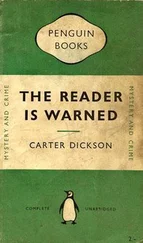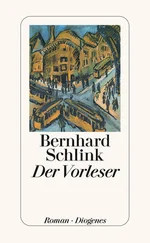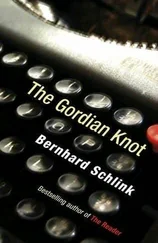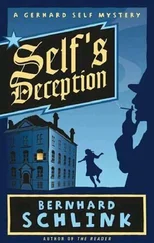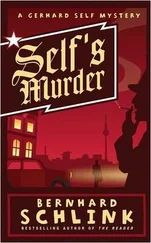I took the train from Boston to New York. The woods were a triumphal parade of brown, yellow, orange, tawny red, and chestnut, and the flaming glowing scarlet of the maples. It made me think of the autumn pictures in Hanna’s cell. When the rhythm of the wheels and the rocking of the car tired me, I dreamed of Hanna and myself in a house in the autumn-blazed hills that were lining our route. Hanna was older than when I had met her and younger than when I had met her again, older than me, more attractive than in earlier years, more relaxed in her movements with age, more at home in her own body. I saw her getting out of the car and picking up shopping bags, saw her going through the garden into the house, saw her set down the bags and go upstairs ahead of me. My longing for Hanna became so strong that it hurt. I struggled against the longing, argued that it went against Hanna’s and my reality, the reality of our ages, the reality of our circumstances. How could Hanna, who spoke no English, live in America? And she couldn’t drive a car either.
I woke up and knew that Hanna was dead. I also knew that my desire had fixed on her without her being its object. It was the desire to come home.
The daughter lived in New York on a street near Central Park. The street was lined on both sides with old row houses of dark sandstone, with stoops of the same sandstone leading up to the front door on the first floor. This created an effect of severity-house after house with almost identical façades, stoop after stoop, trees only recently planted at regular intervals along the sidewalk, with a few yellowing leaves on thin twigs.
The daughter served tea by large windows looking out on the vest-pocket backyard gardens, some green and colorful and some merely collections of trash. As soon as we had sat down, the tea had been poured, and the sugar added and stirred, she switched from the English in which she had welcomed me, to German. “What brings you here?” The question was neither friendly nor unfriendly; her tone was absolutely matter-of-fact. Everything about her was matter-of-fact: her manner, her gestures, her dress. Her face was oddly ageless, the way faces look after being lifted. But perhaps it had set because of her early sufferings; I tried and failed to remember her face as it had been during the trial.
I told her about Hanna’s death and her last wishes.
“Why me?”
“I suppose because you are the only survivor.”
“And how am I supposed to deal with it?”
“However you think fit.”
“And grant Frau Schmitz her absolution?”
At first I wanted to protest, but Hanna was indeed asking a great deal. Her years of imprisonment were not merely to be the required atonement: Hanna wanted to give them her own meaning, and she wanted this giving of meaning to be recognized. I said as much.
She shook her head. I didn’t know if this meant she was refusing to accept my interpretation or refusing to grant Hanna the recognition.
“Could you not recognize it without granting her absolution?”
She laughed. “You like her, don’t you? What was your relationship?”
I hesitated a moment. “I read aloud to her. It started when I was fifteen and continued while she was in prison.”
“How did you…”
“I sent her tapes. Frau Schmitz was illiterate almost all her life; she only learned to read and write in prison.”
“Why did you do all this?”
“When I was fifteen, we had a relationship.”
“You mean you slept together?”
“Yes.”
“That woman was truly brutal… did you ever get over the fact that you were only fifteen when she… No, you said yourself that you began reading to her again when she was in prison. Did you ever get married?”
I nodded.
“And the marriage was short and unhappy, and you never married again, and the child, if there is one, is in boarding school.”
“That’s true of thousands of people, it doesn’t take a Frau Schmitz.”
“Did you ever feel, when you had contact with her in those last years, that she knew what she had done to you?”
I shrugged my shoulders. “In any case, she knew what she had done to people in the camp and on the march. She didn’t just tell me that, she dealt with it intensively during her last years in prison.” I told her what the warden had said.
She stood up and took long strides up and down the room. “How much money is it?”
I went to the coat closet, where I had left my bag, and returned with the check and the tea tin. “Here.”
She looked at the check and put it on the table. She opened the tin, emptied it, closed it again, and held it in her hand, her eyes riveted on it. “When I was a little girl, I had a tea tin for my treasures. Not like this, although these sorts of tea tins already existed, but one with Cyrillic letters, not one with a top you push in, but one you snap shut. I brought it with me to the camp, but then one day it was stolen from me.”
“What was in it?”
“What you’d expect. A piece of hair from our poodle. Tickets to the operas my father took me to, a ring I won somewhere or found in a package-the tin wasn’t stolen for what was in it. The tin itself, and what could be done with it, were worth a lot in the camp.” She put the tin down on top of the check. “Do you have a suggestion for what to do with the money? Using it for something to do with the Holocaust would really seem like an absolution to me, and that is something I neither wish nor care to grant.”
“For illiterates who want to learn to read and write. There must be nonprofit organizations, foundations, societies you could give the money to.”
“I’m sure there are.” She thought about it.
“Are there corresponding Jewish organizations?”
“You can depend on it, if there are organizations for something, then there are Jewish organizations for it. Illiteracy, it has to be admitted, is hardly a Jewish problem.” She pushed the check and the money back to me. “Let’s do it this way. You find out what kind of relevant Jewish organizations there are, here or in Germany, and you pay the money to the account of the organization that seems most plausible to you.” She laughed. “If the recognition is so important, you can do it in the name of Hanna Schmitz.” She picked up the tin again. “I’ll keep the tin.”
A LL THIS happened ten years ago. In the first few years after Hanna’s death, I was tormented by the old questions of whether I had denied and betrayed her, whether I owed her something, whether I was guilty for having loved her. Sometimes I asked myself if I was responsible for her death. And sometimes I was in a rage at her and at what she had done to me. Until finally the rage faded and the questions ceased to matter. Whatever I had done or not done, whatever she had done or not to me-it was the path my life had taken.
Soon after her death, I decided to write the story of me and Hanna. Since then I’ve done it many times in my head, each time a little differently, each time with new images, and new strands of action and thought. Thus there are many different stories in addition to the one I have written. The guarantee that the written one is the right one lies in the fact that I wrote it and not the other versions. The written version wanted to be written, the many others did not.
At first I wanted to write our story in order to be free of it. But the memories wouldn’t come back for that. Then I realized our story was slipping away from me and I wanted to recapture it by writing, but that didn’t coax up the memories either. For the last few years I’ve left our story alone. I’ve made peace with it. And it came back, detail by detail and in such a fully rounded fashion, with its own direction and its own sense of completion, that it no longer makes me sad. What a sad story, I thought for so long. Not that I now think it was happy. But I think it is true, and thus the question of whether it is sad or happy has no meaning whatever.
Читать дальше

